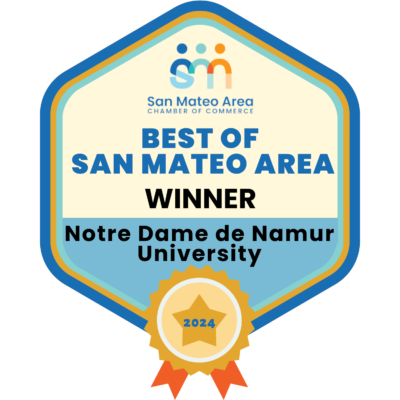
What Can You do With a Master’s in Education?
By Charlie Davenport
A master’s in education is a versatile degree that can open up an array of career paths. It can equip you with the knowledge and skills needed for a career in instruction. It can benefit current instructors, those considering a career change, and those starting a new journey.
Teachers play a crucial role in equipping students with the knowledge, skills, and values necessary to thrive. When pursuing a career in teaching, a common question arises: “Do I need an Education Master’s degree to become a teacher?” Aside from teaching, you can pursue a variety of roles in higher education, such as a professor or academic advisor. In addition, you can use your master’s to work in research or educational technology.
Enhanced Job Prospects and Advancement Opportunities
Commonly, a bachelor’s degree may be sufficient for entry-level positions. Having a master’s can greatly enhance your job offerings and open up additional advancement opportunities. Many school districts and educational institutions prefer candidates with advanced degrees.
Higher Earning Potential
Having a Master’s degree in education often makes you eligible for higher salary scales or salary increases. This is compared to those with only a bachelor’s degree. Financial gain should not be the only reason to pursue an advanced degree. However, it can provide stability and satisfaction in a career.
According to PayScale, the average salary for jobs related to having a master’s in education is $64,000. These numbers vary based on job position, location, inflation, and job sector. When pursuing a path as an educator, pay also varies when teaching for public schools or private/specialty schools. And of course, there are pay differences between elementary, high school, and college positions.
Jobs can you get with a master’s in education
Having a master’s degree can open up a wide range of career paths.
- Curriculum Developer – Create and implement course materials and lesson plans that meet the needs of a diverse range of learners.
- Educational Administrator – Responsible for managing school operations, supervising teachers, and ensuring that students are supported.
- Instructional Coordinator – Evaluate and improve programs, provide professional development to teachers, and assess student performance.
- Education Consultant – Provide advice and guidance to improve outcomes with schools, districts, and other organizations to develop and implement effective programs.
- College or University Professor – As a professor, you will be responsible for teaching courses, conducting research, and mentoring students.
- Corporate Trainer – Work in businesses or other settings to support employee development by instructing and training staff. You can lead an in-person training or create complete training programs.
- Instructional Designers – Responsible for creating new curricula, revising existing ones, and generating training materials for organizations in different industries.
In addition to these education careers, there are a variety of other roles available through specialization.
Specialized Areas of Expertise
Many graduate degree programs offer specialized tracks or concentrations that allow you to develop expertise in specific areas of instruction. These specializations can include topics such as special literacy instruction, STEM education, bilingual education, or educational leadership. By pursuing a specialized track, you can tailor your studies to align with your interests and career goals. This only benefits you by making you highly valuable and sought after in the field you choose to specialize in.

NDNU School of Education
To meet the evolving demands of the schooling landscape, NDNU offers a transformative Master of Arts in Education (MAEd) program. This program offers a comprehensive curriculum, specialized tracks, emphasis on reflective practice, integration of technology, learning opportunities, and supportive faculty.
A Comprehensive Curriculum
NDNU provides a comprehensive curriculum that integrates theory and practices to prepare you for the complexities of modern classrooms. The program covers a wide range of topics, including:
- Curriculum design
- Instructional strategies
- Educational technology
- Assessment methods
- Classroom management
You’ll gain a deep understanding of theory and research. While also learning practical skills that can be applied in classrooms and day-to-day situations.
Specializations to Meet Diverse Needs
Recognizing diverse needs and interests, specializations allow you to tailor your learning experience to career goals and areas of interest. Some specialized tracks are curriculum specialists, literacy coaches, educational leaders, or special education teachers.
Reflective Practice and Professional Growth
The MAEd program emphasizes the importance of reflective practice and continuous professional growth. You will be encouraged to critically analyze teaching practices, identify areas for improvement, and develop strategies to enhance instructional effectiveness. And you will graduate with the tools to foster innovation, positively impact learning outcomes, and adapt to educational trends.
Integration of Technology
In today’s digital age, the importance of technology in teaching and learning practices is non-negotiable. In the MAEd program, you will learn how to leverage educational technologies to enhance instruction, engage students, and promote digital literacy. Having these skills equips you to meet the demands of a technologically advanced classroom. You can use these skills to create meaningful learning experiences for your students.
Learning and Field-Based Opportunities
Go beyond traditional classroom instruction by providing you with learning opportunities and field-based experiences. You can gain practical experience through internships, practicums, and partnerships with local schools. This will give you the chance to use your knowledge and skills in real-world settings. These experiences allow you to connect theory with practice, deepen your understanding, and build professional networks within the education community.
Supportive Environment and Faculty Expertise
The dedicated and experienced faculty members at NDNU are committed to the success of their students. They provide personalized guidance, mentorship, and support throughout the program. With small classroom sizes, you and your peers will receive individualized attention and be well-prepared to overcome future challenges.
Professional Networking and Collaboration
Connect with fellow educators, professors, and professionals in the field. These networking opportunities foster collaboration, sharing of ideas, and the establishment of valuable relationships. These connections can be invaluable throughout your career, offering support, mentorship, and opportunities for professional development.

Start your education journey
Now that you know what having a degree in education entails, it is time to reflect and decide your next steps. By enrolling in a graduate school you will gain the necessary skills, knowledge, and network. This will enable you to make a positive impact on students’ lives. You will also contribute to the positive development of the education field.
For information on applying to Notre Dame de Namur University, please visit the Admissions Page.
More From NDNU

What is Educational Therapy and How Does it Work? – NDNU
Are you thinking about working in the field of education? Are you passionate about helping students reach their full potential by considering their individual needs?

What Does an Educational Therapist Do? – Notre Dame de Namur University
August 21st, 2024 Read Time Estimate: 5 minutes Exploring the World of Educational Therapy: What You Need to Know Have you ever wondered about the

What Can You do With a Master’s in Education?
A master’s in education is a versatile degree that can open up an array of career paths. It can equip you with the knowledge and


